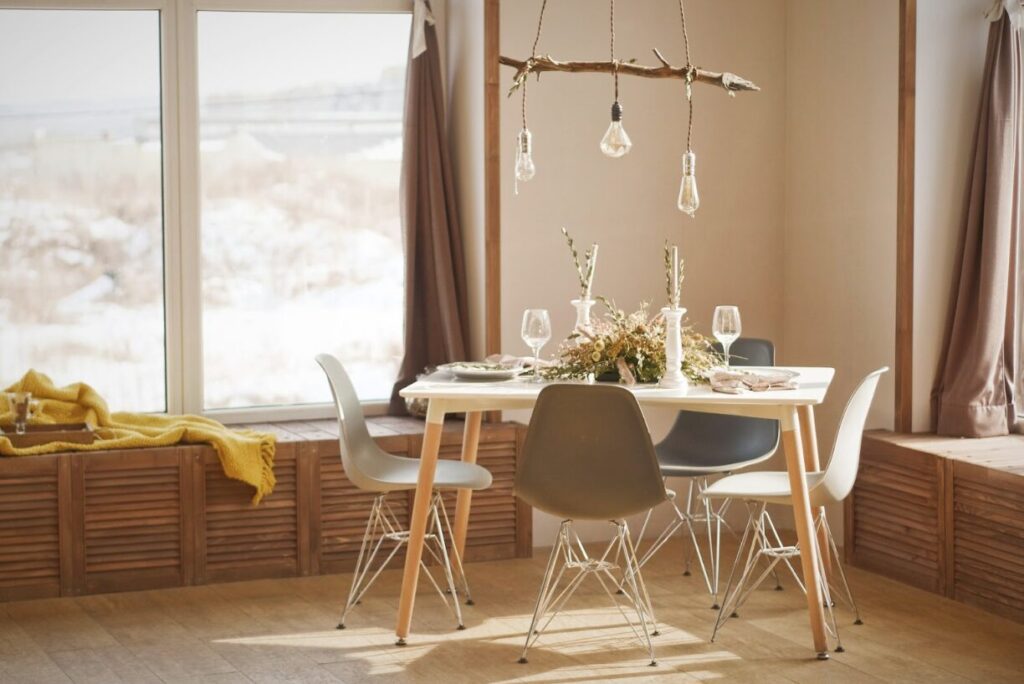Does everything seem depressing as the days grow short? You’re not alone. Seasonal Affective Disorder (SAD) is a common issue for many, with darker days leading to sluggishness, low energy, and feelings of gloom.
But here’s some good news: your home can be a secret weapon in managing seasonal depression. Let’s dive into some practical ways to create a space that uplifts your spirits all year long.
Understanding Light’s Impact on Health
Light isn’t just about being able to see clearly—it’s a vital part of how our bodies function. Seasonal depression often stems from a lack of light exposure, disrupting our circadian rhythms and suppressing serotonin production. Natural light helps regulate sleep, boost energy, and stabilize mood.
Artificial light matters, too. The type of light you use at home can influence everything from how alert you feel to how well you sleep. If lighting feels like an afterthought, it’s time to rethink that approach.
Maximize Natural Light
First things first: make the most of the daylight that is already available. Start by arranging furniture so windows remain unobstructed—no bulky bookshelves blocking that precious sunlight. Opt for sheer curtains or blinds that let light in while still offering privacy.
Want to amplify the brightness? Mirrors can work wonders. Strategically placed, they bounce light around the room, creating an airy and open feel. If you’re remodeling, consider glass doors or transoms to allow light to flow from room to room.
Even the direction your windows face matters. North-facing rooms may need extra reflective surfaces, while south-facing spaces often have the advantage of consistent daylight.
Artificial Lighting Solutions
Cloudy day? That’s where artificial light can help. Light therapy boxes are a game-changer for managing SAD, as they mimic natural daylight to help reset your body’s internal clock. Look for models with at least 10,000 lux of light output for maximum effectiveness.
Smart lighting systems are another great option. These allow you to adjust brightness and color temperature throughout the day, simulating the natural progression of sunlight. For bulbs, go for full-spectrum or those labeled “daylight,” which offer a clean, bright glow that lifts spirits.
Layer your lighting by combining overhead fixtures, task lights, and ambient sources like floor lamps. This approach ensures every corner of your home feels inviting, not shadowy and dim. And if mornings are your toughest time, try a sunrise alarm clock—it’s like waking up with a personal sunbeam.
Color and Texture
Lighting is key, but the colors and textures in your home can help offset the blues too. Bright, warm hues like yellows, soft oranges, and pastel blues can help counteract dreary weather. Reflective surfaces, like metallic accents or glossy finishes, amplify light.
Textures can influence mood, too. For example, cozy throws, soft rugs, and uplifting natural materials like wood or wicker provide a soothing, calming experience. Plants also deserve a shout-out. They not only purify the air but also bring a vibrant, life-affirming energy to your space.
Setting Up Mood-Lifting Zones
Set up an energizing morning corner near a bright window to help set the tone for your day—add a light therapy lamp and a cup of coffee for good measure.
For downtime, a cozy nook with a plush chair and soft lighting becomes your go-to spot to recharge. If staying active helps boost your mood, carve out an indoor exercise area with energizing decor.
Air Quality and Natural Elements
Stale air can make even the brightest room feel stifling. Bring in air-purifying plants like snake plants, peace lilies, or pothos. A humidifier can also help maintain comfortable moisture levels, especially in winter.
Scents are another powerful mood booster. Aromatherapy options like citrus, lavender, or eucalyptus can add an extra layer of comfort to your home. And don’t underestimate the power of good ventilation—a steady flow of clean air keeps your space feeling fresh and lively.
Seasonal Preparation Checklist
Preparing your home for the seasons can make transitions smoother. In early fall, check your windows and curtains to ensure they’re maximizing light. During winter, stay on top of regular maintenance like replacing dim bulbs or cleaning mirrors to reflect more light. Spring brings the perfect opportunity to rearrange your space for a lighter, more open feel.
Year-round planning ensures your home remains a supportive, uplifting environment, no matter the weather outside.
Additional Lifestyle Considerations
Your home isn’t just a shelter; it’s the backdrop for your daily routines. Use it to encourage healthy habits, like an evening wind-down routine with dimmed lights and soothing scents. Create spaces for connection, such as a dining nook where family and friends can gather.
Want to stay active indoors? Set up a yoga mat or small weights in a well-lit corner. Hobbies, too, deserve a special spot—whether it’s a crafting table or a music corner, having these spaces can brighten your mood.
The beauty of creating a SAD-resistant home is that it’s completely customizable. Whether you’re adding more plants, switching up your lighting, or carving out a meditation space, small changes can have a big impact.
Remember, if SAD symptoms persist, it’s essential to consult with a healthcare provider. But for now, take a look around your home—what’s one change you can make today to brighten your space and your spirits?
10 Quick Ways to Freshen up Your Home for the Winter
Mastering the Art of Light Layering: Crafting a Warm and Cozy Atmosphere for Your


